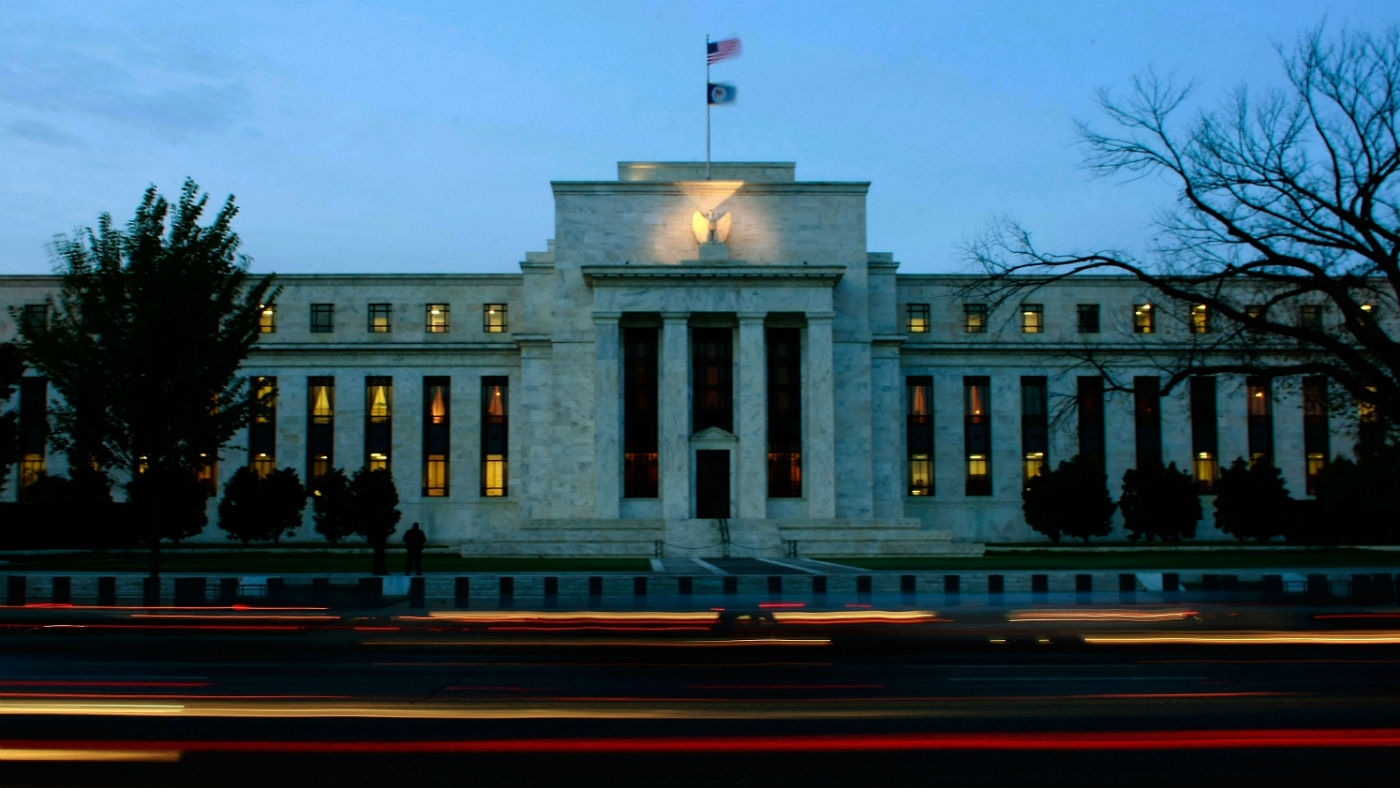Who will be the next Fed chairman?
And why it matters to the rest of the world

A free daily email with the biggest news stories of the day – and the best features from TheWeek.com
You are now subscribed
Your newsletter sign-up was successful
Donald Trump is poised to announce a new Chairman of the US Federal Reserve, widely acknowledged to be the most powerful position in world finance.
Janet Yellen, who was appointed to the post by former president Barack Obama, will come to the end of her current term in January, and although he could keep her on, Trump is expected to replace her. Now he must decide whether to choose a candidate who will maintain her approach or role the dice and appoint a wild card who will shake up the US central bank.
So who is in line for the job?
The Week
Escape your echo chamber. Get the facts behind the news, plus analysis from multiple perspectives.

Sign up for The Week's Free Newsletters
From our morning news briefing to a weekly Good News Newsletter, get the best of The Week delivered directly to your inbox.
From our morning news briefing to a weekly Good News Newsletter, get the best of The Week delivered directly to your inbox.
According to The Washington Post, President Trump has “largely settled” on nominating either former investment banker Jerome “Jay” Powell or Stanford University economist John Taylor, “setting the stage for what could be one of the most consequential economic decisions of his administration”.
Powell is a Fed governor who has generally supported Yellen’s cautious approach to raising interest rates and favours greater financial regulation.
The more conservative Taylor “is considered more hawkish on fighting inflation, and many economists believe he would move more quickly to raise interest rates than Powell”, says the Post. He has also criticised the current Fed board for trying too hard to stimulate the economy, warning it could lead to out of control inflation last seen in the US in the 1970s and 80s.
The choice, says the New York Times, “pits a status quo candidate” against an economics professor “celebrated by many conservative republicans for his insistence that the economy would produce stronger growth if the Fed would just get out of the way”.
A free daily email with the biggest news stories of the day – and the best features from TheWeek.com
However, despite his more obvious ideological affinity with the current administration, Taylor’s chances may be hampered by Trump’s long-stated commitment to keep interest rates down.
Anyone else?
Given that presidents dating back to Ronald Reagan have reappointed the Fed chairmen they inherited for at least one more term, there have been calls in some quarters for Yellen to be kept in the job.
In an editorial, USA Today urged the president to “follow the oath of doctors, and first do no harm”, arguing “there is no reason not to reappoint Yellen, the first woman to hold the post. She is a capable and well-respected chairman who gained valuable experience as a Fed governor during the 2008 financial crisis. As chairman, she has ably begun the process of unwinding the policies that kept the economy from sinking too far into the abyss”.
However, despite praising her approach to running the central bank and claiming she is still in the running, in a recent interview with Fox Business Trump appeared to suggest he was looking for someone new at the helm.
The New York Post has come up with a more radical proposal: that the President himself should take up the role.
In a somewhat tongue-in-cheek editorial, the tabloid said that since the Fed won't do anything Wall Street or Washington doesn’t like, no matter who is the boss, “pick the one guy who’s in charge of Washington (at least in his mind) and beholden to Wall Street”.
And this way it added, “when Trump changes his mind about interest rates — too low when he was a mere candidate, yet he doesn’t want them raised now that he’s president — he won’t have to explain his flip-flops”.
Trump has promised to make a decision by the end of next week.
Why does it matter?
The Chairman of the Federal Reserve performs a similar role to that of the governor of the Bank of England, responsible for interest rates and regulation.
This might make Trump’s decision seem like a purely American issue, “but in fact, it matters to the rest of the world, and even more this time around than usual”, says Matthew Lynn in The Daily Telegraph.
Why? “Because the president is so unstable, a rock steady presence at the Fed is more vital than ever; because the US is embarking on a unique and high-risk experiment in normalising monetary policy; and because, despite challenges, the US remains the world’s crucial source of economic growth”.
-
 The Olympic timekeepers keeping the Games on track
The Olympic timekeepers keeping the Games on trackUnder the Radar Swiss watchmaking giant Omega has been at the finish line of every Olympic Games for nearly 100 years
-
 Will increasing tensions with Iran boil over into war?
Will increasing tensions with Iran boil over into war?Today’s Big Question President Donald Trump has recently been threatening the country
-
 Corruption: The spy sheikh and the president
Corruption: The spy sheikh and the presidentFeature Trump is at the center of another scandal
-
 Currencies: Why Trump wants a weak dollar
Currencies: Why Trump wants a weak dollarFeature The dollar has fallen 12% since Trump took office
-
 TikTok: New owners, same risks
TikTok: New owners, same risksFeature What are Larry Ellison’s plans for TikTok US?
-
 Trump wants a weaker dollar, but economists aren’t so sure
Trump wants a weaker dollar, but economists aren’t so sureTalking Points A weaker dollar can make imports more expensive but also boost gold
-
 Leadership: A conspicuous silence from CEOs
Leadership: A conspicuous silence from CEOsFeature CEOs were more vocal during Trump’s first term
-
 Powell: The Fed’s last hope?
Powell: The Fed’s last hope?Feature Federal Reserve Chairman Jerome Powell fights back against President Trump's claims
-
 The end for central bank independence?
The end for central bank independence?The Explainer Trump’s war on the US Federal Reserve comes at a moment of global weakening in central bank authority
-
 Can Trump make single-family homes affordable by banning big investors?
Can Trump make single-family homes affordable by banning big investors?Talking Points Wall Street takes the blame
-
 Phish food for thought: Ben & Jerry’s political turmoil
Phish food for thought: Ben & Jerry’s political turmoilIn the Spotlight War of words over brand activism threatens to ‘overshadow’ the big ice cream deal